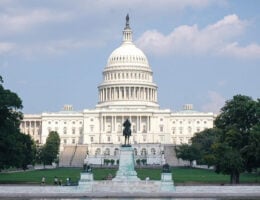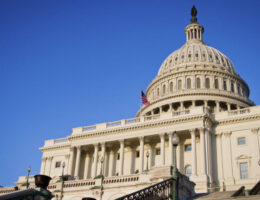The Federal Trade Commission has just announced its annual adjustment to the notification thresholds that determine whether proposed transactions may trigger a filing obligation under the Hart-Scott-Rodino (HSR) Antitrust Improvements Act of 1976, as amended. The corresponding adjustments to the HSR filing fee schedule also were included in the announcement. The adjusted notification thresholds and filing-fee schedule will apply to transactions that close on or after the effective date, which will be 30 days after publication in the Federal Register and no earlier than 26 February 2024.
On 18 December 2023, the Antitrust Division of the US Department of Justice (DOJ) and the Federal Trade Commission (FTC) jointly issued their highly anticipated final version of the 2023 Merger Guidelines . The issuance of the Guidelines follows the agencies’ release of draft guidelines in July and the conclusion of a public notice-and-comment period. The Guidelines set out how the agencies assess whether mergers and acquisitions threaten anticompetitive harm in violation of US antitrust laws.
Most notably, the newly issued Guidelines retained the lower thresholds for establishing presumptions of anticompetitive harm — including if the merger gives the combined firm more than 30% market share. Additionally, the Guidelines outline a holistic approach for analyzing vertical mergers.
On 8 November 2023, join thought leaders from government, the judiciary, academia, and private practice for this timely gathering on the Georgetown Law campus in Washington, DC. Laws and policy surrounding the protection of trade secrets are changing as technology evolves. In this first-of-its-kind event at Georgetown, intellectual property experts will discuss the following topics: How generative AI is transforming the trade secret landscape, the role of non-competes, protecting against leaks of confidential information, the impact of China’s emerging trade secret protection landscape on global commerce, and the future of trade secrets in the US and abroad.
The recent proliferation of artificial intelligence (AI) tools, particularly generative AI tools, has brought these questions to the forefront of ongoing conversations about the role that AI will play in the marketplace. As an advocate for and enforcer of consumer protection laws, the US Federal Trade Commission recently offered reminders and recommendations for companies offering digital products and AI tools.
On 27 June 2023, the Federal Trade Commission, with the concurrence of the Assistant Attorney General for the US Department of Justice’s Antitrust Division, announced proposed changes to the premerger notification form and associated instructions and rules that implement the Hart-Scott-Rodino (HSR) Act. The proposed changes represent an expansion and reorganization of the information collected on the HSR form.
On 13 April 2023, the Federal Trade Commission (FTC) issued a letter containing a Notice of Penalty Offenses Concerning Substantiation of Product Claims to approximately 670 advertisers, putting each company on notice that deceiving consumers with advertisements that make unsubstantiated product claims could subject the company to civil penalties of up to USD 50,120 per violation under 15 U.S.C. § 45(m)(1)(B).
On 27 January 2023, the Eleventh Circuit Court of Appeals issued its unanimous (3-0) decision in FTC v. Simple Health Plans, LLC, et al., No. 21-13116. This matter stemmed from an individual defendant’s emergency motion to dissolve a preliminary injunction that a district court had issued under Sections 13(b) and 19 of the FTC Act. The district court denied the emergency motion, and the defendant appealed.
On 3 February 2023, the US Department of Justice announced the withdrawal of three antitrust policy statements that allowed certain information exchanges between competitors in healthcare markets. The day before this announcement, Principal Deputy Assistant Attorney General Doha Mekki of DOJ Antitrust Division warned that DOJ would reconsider these outdated policy statements in light of recent changes in the healthcare industry.
In its first criminal no-poach prosecution to result in a penalty against an individual, the US Department of Justice has entered into a pretrial diversion agreement that requires the defendant to complete 180 hours of community service, refrain from any criminal activity or unlawful drug use, and surrender his passport for six months. In exchange, the defendant will not be incarcerated or face further penalties in connection with the underlying no-poach charges. While the penalties are not severe, they constitute the first time that penalties have been assessed against an individual defendant and have important implications for corporate officers, directors, managers, and HR professionals.
The Federal Trade Commission has just announced its annual adjustment to the notification thresholds that determine whether proposed transactions may trigger a filing obligation under the Hart-Scott-Rodino Antitrust Improvements Act of 1976, as amended, which will apply to transactions that close on or after 27 February 2023.









